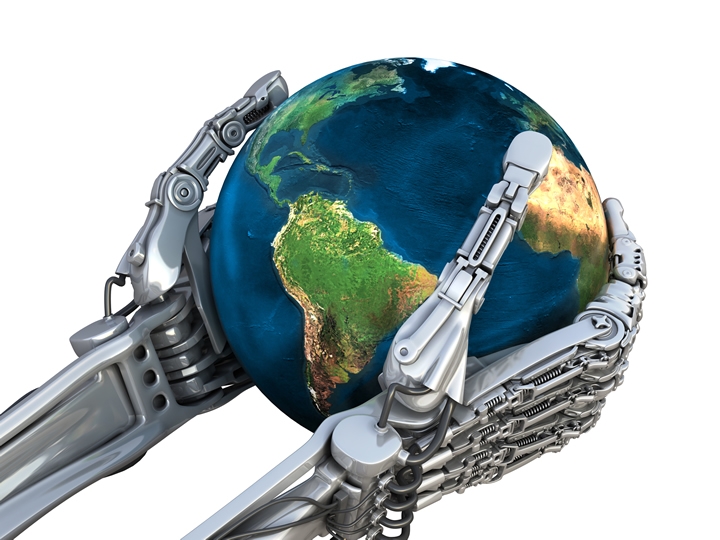Though Europe is perceived as lagging behind in areas like cloud computing, infrastructure, chip manufacturing, and AI—particularly in creating large language models (LLMs)—it is not solely the regulations that account for these delays.
 Has Europe gone too far? The Delicate Dance of Regulation and Innovation
Has Europe gone too far? The Delicate Dance of Regulation and Innovation

Anders Indset | Author
While one can argue that Europe’s cautious regulatory approach might hinder innovation and competition in AI compared to more permissive regions like the US and China, the challenge is more nuanced. The world faces the dual task of advancing rapidly in exponential technologies while also protecting citizens from the potential risks of unregulated AI systems, such as privacy violations and data misuse. This regulatory stance can position Europe as a leader in setting global standards, offering early adopters additional advantages.
Though Europe is perceived as lagging behind in areas like cloud computing, infrastructure, chip manufacturing, and AI—particularly in creating large language models (LLMs)—it is not solely the regulations that account for these delays. Surprisingly, Europe is gradually catching up in producing unicorns, indicating progress despite the challenges.
New Industrial Revolution – New Rules
The recent struggles of the automotive industry, exemplified by Volkswagen’s challenges in Germany, highlight a broader issue: the difficulty in anticipating future scenarios and adapting to exponential technologies. Once renowned for its global brand and precision engineering, Germany's automotive sector gave rise to numerous world market leaders, or ‘Hidden Champions.’
The new industrial revolution, characterized by high-risk, high-reward strategies, contrasts sharply with the more conservative approaches traditionally associated with Europe. This shift reflects a U.S. culture of rapid innovation and China’s state-capitalism with centralized decision-making. Bureaucracy and over-regulation in Germany, coupled with skepticism towards data sharing and a tendency to seek the perfect solution to ill-defined problems, pose significant challenges. Europe’s fragmented landscape of 27 countries and 24 languages adds to the complexity.
However, this regulatory approach can also offer advantages. The European Union, despite its image as a regulatory heavyweight, could inspire global standards with its strong user protection frameworks, such as GDPR, which emphasizes transparency, consent, and control over personal data. This focus on user rights might serve as a model for new global practices.
In a winner-takes-all market economy, where autonomy and accountability are crucial, Europe’s regulatory stance may help build public trust in AI systems. While Europe plays a stabilizing role, its focus on regulation has led to a perception of lagging behind in technological innovation, with the U.S. driving advancements and China rapidly catching up.
The need for a solid regulatory framework in the U.S., including antitrust laws to foster competition, contrasts with the EU’s approach. GDPR, despite its complexities, has set a global standard for data privacy, potentially offering competitive advantages for European companies. Europe faces challenges in attracting talent and navigating a less risk-tolerant venture capital ecosystem compared to Silicon Valley. The main hurdle may not be the regulations themselves but their implementation. Improved communication and a more user-friendly approach could enhance Europe’s ability to leverage its regulatory innovations effectively.
The Slow Rise of European Unicorns
Despite various challenges, Europe is gradually catching up with the US and China in producing unicorns. Companies like Klarna, Spotify, Revolut, and Northvolt have been leading the charge, and over the past decade, Europe has increased its share of unicorns, even though it still trails behind its international counterparts. Access to capital has historically been a hurdle, but international investors are now turning their attention to European ventures, including those in quantum technology like Terra Quantum and IQM, as well as innovative aviation startups such as Lilium Jet and Volocopter VoloCity. Additionally, healthtech and climate tech startups are thriving in vibrant ecosystems across London, Barcelona, and Stockholm.
The central question for Europe is whether to focus on protecting existing assets or investing in future growth. The challenge is less about regulation itself and more about its execution. Europe’s slower pace was evident recently when top CEOs from US AI companies met with the Biden administration to discuss AI’s future and its economic impact. After the meeting, Nvidia CEO Jensen Huang remarked that the administration was "determined to do the most and do it the fastest," underscoring the importance of a collaborative approach between technological leaders and government.
In the delicate balance between regulation and innovation, Europe could benefit from adopting the speed, communication, and marketing strategies seen in the US. Meanwhile, the EU's commitment to protecting its citizens offers a valuable model for addressing the challenges posed by rapid technological advancement. As we face a new industrial revolution, Europe’s approach to regulation and protection can contribute significantly to shaping the future of a digital and interconnected world.
Anders Indset is the author of four Der Spiegel bestsellers, with his books translated into over ten languages. His latest book, “The Viking Code,” will be published in the US on September 24. Anders is the founder of the investment and advisory firm Njordis and the Global Institute of Leadership & Technology (GILT), as well as the initiator of numerous projects such as the Quantum Economy Alliance. His book “The Quantum Economy” gained international recognition, and his forthcoming “Singularity Paradox – Bridging Humanity and AI” is announced for early 2025. Thinkers50 considers Anders one of the most influential future thinkers in the fields of leadership and economy.
The content & opinions in this article are the author’s and do not necessarily represent the views of RoboticsTomorrow
Comments (0)
This post does not have any comments. Be the first to leave a comment below.
Featured Product

